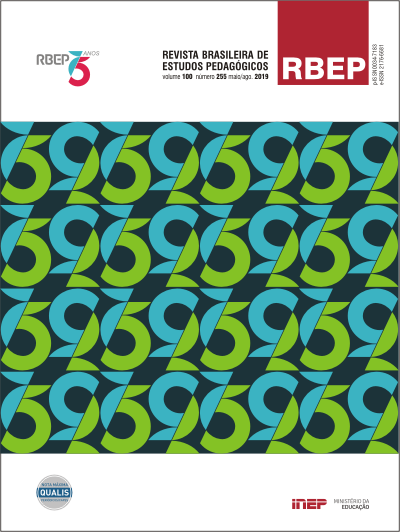The place research occupied within the Regional Centers for Educational Research in the 1950s and 1960s: revisiting experiences of popular education in the perspective of the indiciary paradigm
Abstract
Seeking to unearth bibliographic sources and based on the indiciary paradigm, this study aims to understand society’s progressive approach to the political and educational problems of the 1950s and 1960s in Brazil. Within the differences and divergences on what to do and what to expect from popular culture – which has its cultural, ethnic and regional heterogeneity – and within its limited tradition of working-class activism,
there were points of approximation: the Department of Cultural Extension of the University of Recife, the Centers of Popular Culture and the Regional Centers of Educational Research were invested on the education
to reinforce democracy for economic and social development; searching, as well, for propositions fitted specifically to the educational field. Thus, research and dialogue, with their demands and practices, have made an essential part of what was considered subversive energy. The findings and repercussions of these researches increased fear among military people and civilians, considering that the implemented changes altered the apparent equilibrium and how individuals adjusted to the social medium, according to conservative and dominant sectors of the country.
Downloads
Once their work is accepted for publication, author’s copyrights are automatically relinquished to the National Institute for Educational Studies and Research Anísio Teixeira (Inep).
Since 2016, the journal Revista Brasileira de Estudos Pedagógicos (RBEP) uses the licence CC-BY.
Partial or total reproduction of the content of this Journal is permitted provided that the original publication is properly referenced, as well as a link to license CC BY 4.0 and to indicate any possible alterations made to the article.




















